With electric vehicle charge points springing up in city centres and motorway service stations, and falling road fuel sales, you could be excused for fearing the days of petrol and diesel as the main fuel for cars were nearly over, but most experts agree both will have a strong presence for decades to come.
In the short term, one major reason is the reluctance of consumers to embrace electric cars, even when the government is providing grants of £5,000 for each one that is sold. Sales of vehicles eligible for the grant have risen by 155.4% for the year to date, compared with the same period in 2013, but that means they now stand at 4,815 this year versus 1,885 last year. To put that into context, sales this year represent just 0.3% of the new cars sold, and there is evidence that used electric cars are losing far more of their resale value than their conventionally powered rivals.
LowCVP is a body set up to promote lower carbon vehicles and fuel, and its managing director Andy Eastlake says use of electric vehicles and hydrogen fuel cells will increase in the future, but he affirms: "The internal combustion engine running on different forms of petrol and diesel is seen to be a key part all the way to the post-2040 timeframe, so combustion engines are part of the solution going forward." PRA chairman Brian Madderson agrees it is unthinkable that petrol and diesel will be supplanted in the foreseeable future. He says: "There are just so many millions of petrol and diesel engine vehicles around 34 million in the UK and that is a massive market and it would take a major trend to move away from it."
However, there have been substantial changes within the fuel market over the past two decades as diesel has overtaken petrol as the most popular road fuel. Of course, diesel has always been the fuel for most commercial activities, but it has been the UK car fleet of around 30 million vehicles which has driven the change. Petrol sales peaked in 1990 at 33 billion litres, accounting for 73% of road transport fuels, and have been on a steady downward trajectory reaching 17 billion litres last year. Meanwhile, diesel sales have grown at an average of 3% per year for the past 20 years reaching 26 billion litres in 2013, and accounting for 61% of the road fuels sold last year.
The ’dieselisation’ of the market has largely been driven by government policy, says Madderson. Taking a narrow environmental view on the CO2 emissions of petrol versus diesel, and also the greater perceived efficiency of diesel engines, the government introduced tax policies favouring diesel cars, and this was particularly strongly felt in the company car fleet. This has resulted in the proportion of new cars being sold that were diesel climbing from 10% in 2000 to almost 50% in 2013.
However, it looks as though this dieselisation trend could be faltering as the EU and British governments have become concerned about the health issues surrounding the particulates and other pollutants in diesel exhaust. The Department for Transport insists there has been no policy change as yet, but local authorities are threatening to charge diesel cars to enter city centres, in a bid to meet stringent EU air quality targets.
One sector that would probably welcome a swing back towards petrol is the UK oil refiners. Chris Hunt, director general of the oil refiners’ trade association UKPIA, comments: "This shift [dieselisation] is now having a significant impact on our refineries in the UK, which were mainly configured to produce petrol rather than diesel. An unintended consequence of dieselisation has led to a supply/demand imbalance in the UK. The UK has a deficit of diesel and aviation fuel we now import some 9.1 mte (million tonnes of oil equivalent) of diesel per year and 6.1 mte per year of jet fuel into the UK, and export some 3.6 mte per year of petrol and 3.4 mte per year of fuel oil."
Even before the sudden interest in the amount of pollution it causes, diesel was coming under scrutiny after a rash of breakdowns, with users reporting that it was clogging filters. Hunt says: "UKPIA is aware of reported incidences of filter blocking issues in diesel cars which occurred mainly in the North East of England during last winter. UKPIA members, who do not supply all of the fuel in the region, are fully participating in the BSI task force that is currently investigating this complex issue to establish the root cause of the problem. UKPIA members have also introduced a voluntary Filter Blocking Tendency (FBT) limit of 2.52 for diesel fuel to protect consumers. This remains in place while evaluation for effectiveness is ongoing. UKPIA members were the first to introduce this additional test."
Some commentators are pointing the finger of suspicion at the biofuel element, but Hunt adds that several points should be noted with regards to fuel quality of diesel:
diesel in the UK is required to meet BS EN 590 standard;
fuels suppliers are mandated to add biofuels to road fuels under the Renewable Transport Fuels Obligation (RTFO), which commenced in 2008. Under the order the quantity of biofuel to be added has increased each year and is currently 4.75% volume when averaged over all transport fuels;
the biodiesel element (FAME) must meet BS EN 14214:2012 standard, which includes a modified diesel specification to address low-temperature vehicle operation.
As Hunt points out, a proportion of biofuel is being added to both petrol and diesel to comply with European-wide legislation, but the expected move from E5 to E10 in unleaded petrol has been delayed while Europe gives the subject more consideration. There had been concern that using food crops to produce biofuel was pushing up food prices, particularly in poorer countries in the developing world, but as things currently stand E10 still needs to be introduced before 2020.
With the government saying it is down to the oil companies to make a commercial decision on when E10 is introduced, LowCVP is the body that has been given the task of developing a strategy for its introduction. Andy Eastlake says that work is currently under way but is unlikely to be completed before the general election in May 2015, so it is unlikely to be ready before the second half of next year.
One of the main tasks will be educating consumers about the change and ensuring they can obtain fuel that is compatible with their engines. Eastlake says already 89% of the UK gasoline fleet is compatible with E10 and that figure will only increase as new cars replace the older incompatible ones. However, a key facet of the strategy will be how to support those incompatible vehicles. He acknowledges that a third grade is unlikely to be a viable option for most service stations and one solution could be to keep super unleaded as an E5 fuel.
Information on the premium brands is jealously guarded by the oil companies but anecdotal evidence suggests that in some affluent areas in the Home Counties it can account for up to 10-12% of a site’s sales, while in less affluent locations it might only be 3-5%. Shell’s V-Power is generally seen as the biggest of the UK’s premium brands and a spokesman says demand is growing steadily, and adds: "Shell V Power Nitro+ unleaded is available at over 90% of our retail sites and diesel at over 70%. We are always looking to expand coverage of our premium fuel as we redevelop our retail sites." Brian Madderson says premium brands are popular with dealers because they offer them a better margin, and they provide a key point of difference from the supermarkets.
Meanwhile, as UK refineries have closed and oil companies have re-evaluated their business in the UK, there have been changes in the way fuel is supplied to retailers. Hunt says: "Supply to the retail market has changed dramatically over the past 20 years.
"Fully integrated oil companies have in some cases moved to a wholesale model ceasing to directly retail to the consumer and new entrants have acquired refineries supplying on a commercial basis with no direct retail link. Also new entrants, such as Greenergy who provide import and blending facilities, have moved into the market." This new breed of fuel suppliers such as Greenergy and Harvest Energy, which is also bringing brands such as Spar and Nisa out of the stores and onto the fuel, is another sign that petrol and diesel still have plenty miles left in the tank.
government failure on lpg
With so much media attention on the cost of fuel, and on the air quality problems caused by traffic, you would expect that an alternative to petrol and diesel that is much cheaper and cleaner would be experiencing booming sales, but sadly for LPG that is not the case, at least in the UK.
While there are half a million LPG users in Germany, and new car buyers can buy from a range of models with LPG engines, the number of vehicles using LPG in the UK has fallen from 165,000 in 2010 to 150,000, and the few manufacturers producing new cars equipped for LPG have all dropped out of the market.
Linda Gomersall, general manager of Autogas, says the problem is a lack of long-term vision by the government. While the German government has produced a 10-year strategy for all road fuels, the UK government has failed to engage with the market in the same way, although it has confirmed that it will maintain a tax differential with petrol and diesel through to 2023.
This means that LPG is currently less than 70ppl, and, says Gomersall, an average driver will see the conversion cost of around £1,500 pay for itself in 12-18 months.
Shell is the biggest single supplier of LPG as a road fuel, with 223 filling points through Autogas, its joint venture with Calor, and there are a total of 1,400 filling points across the UK.
Vital statistics
Road transport fuel demand has fallen for the fifth consecutive year, according to UKPIA’s Statistical Review 2014, meaning it has fallen by 12% since 2007. UKPIA director general Chris Hunt says: "This can be attributed in part to the economic downturn as well as higher oil prices and improved vehicle efficiency." Drilling down into the figures, diesel sales in 2013 were up 2% on the previous year, but petrol was down 5%. The share between petrol and diesel continued to swing in the latter’s favour with diesel now accounting for more than 60% of total fuel sales.
Petrol sales declined to 17 billion litres with the average decline over the past five years standing at more than 5% a year, compared with the average decline over 20 years of 2.8%. Diesel sales topped 26 billion litres and have an average growth rate of 3% over the past 20 years.
Hunt says: "The increase in diesel sales is part of a Europe-wide trend, which has largely been fiscally driven for over two decades. With the advances achieved in diesel engine performance leading to improved fuel efficiency relative to petrol, combined with changes in company car personal tax policy and VED (vehicle excise duty) rates, consumers in recent years have increasingly favoured diesel cars. Today, 49% of new registered vehicles in the UK are diesel fuelled up from 48.7% in 2013 and over 61% of the 43.4 billion litres of road fuels sold last year was diesel."






















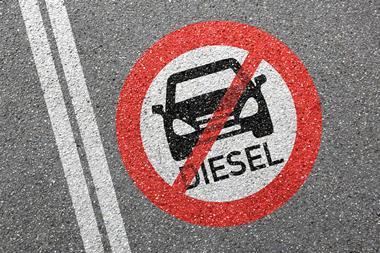


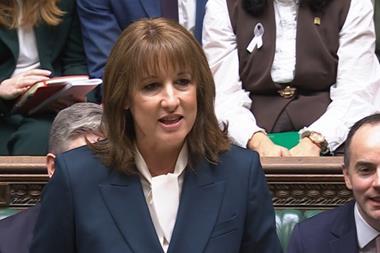
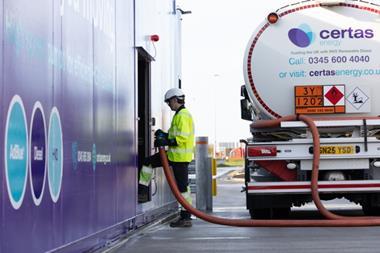


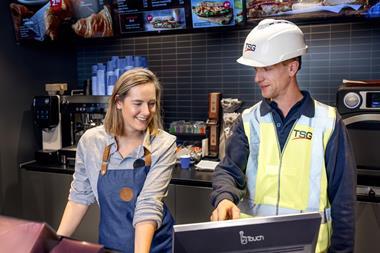
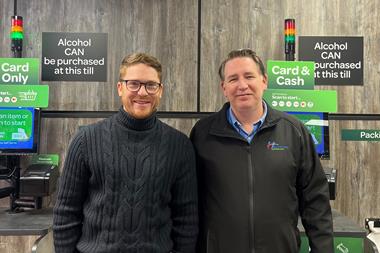
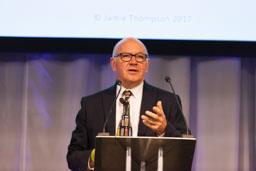

No comments yet